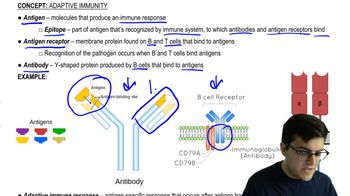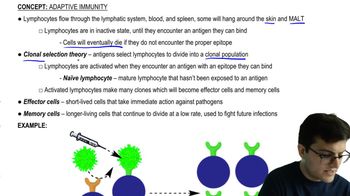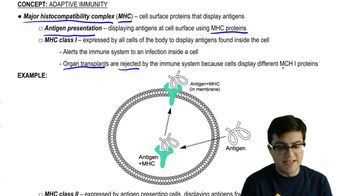41. Immune System
Adaptive Immunity
41. Immune System
Adaptive Immunity
Showing 10 of 10 videos
Additional 46 creators.
Learn with other creators
Showing 49 of 49 videos
Practice this topic
- Multiple ChoiceWhich of the following is a characteristic of adaptive immunity?1864views
- Multiple ChoiceWhy is HIV a dangerous pathogen?1806views
- Multiple ChoiceWhy does our immune system not usually attack our own healthy tissues?1748views
- Multiple ChoiceNew flu shots are needed every year to protect against infection because of __________.1304views



























































